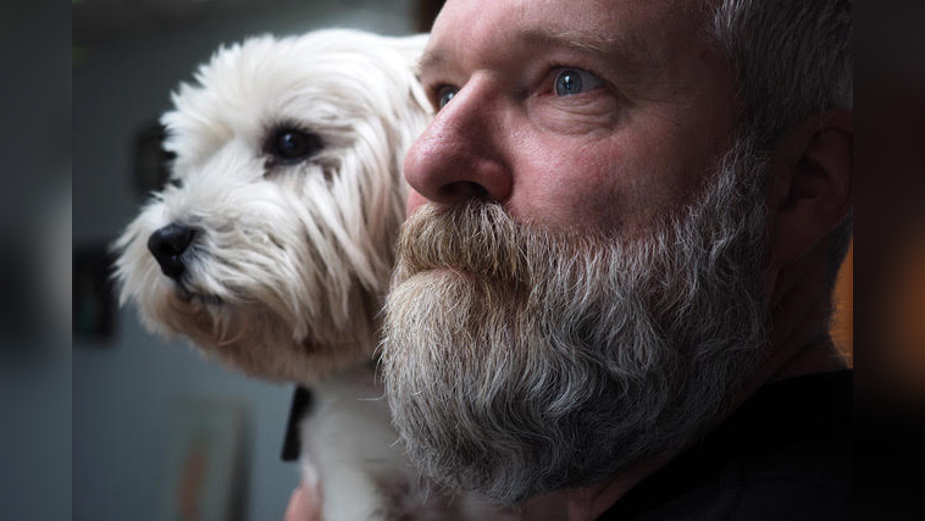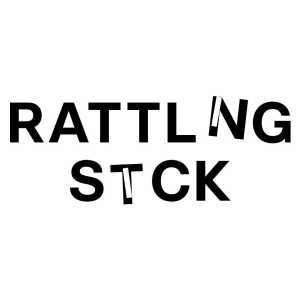
The Directors: Hamish Rothwell

Hamish Rothwell’s enduring career in advertising began fittingly; with an indestructible ad for G-Shock Watches. The campaign became a global hit and launched Hamish into an international career that took him to the Super Bowl for Hyundai and Bai Bai Bai. Over fifty awards collect dust on his mantle including Cannes Lions, Clio, D&AD One Show, ADC, and LIA.
Hamish is a born storyteller who stumbled into directing by way of acting by way of music. He graduated from the London Film School and soon earned a spot in the Saatchi & Saatchi New Directors Showcase.
After graduating, he returned to New Zealand and directed his feature, Stickmen – a comedy about a high-stakes pool competition run by a crime boss – winning Young Filmmaker of the Year from the NZ Screen Producers and Directors Association and Best Direction at the NZ Film Awards, not quite widely known as New Zealand’s version of the Oscars.
Twenty years of iconic work, including Nestle Drumstick ‘Summer Rituals,’ has led to acknowledgment as BestAds Top 5 Directors of the Decade.
Hamish has an idiosyncratic voice that still appeals to the broadest audience. From the gentile discourse of Christopher Walken and Justin Timberlake digesting NSync lyrics in Bai Bai Bai’s Super Bowl ad; to seamless effects and fabled imagery in the story of a winged-boy who gives up his wings to fit into a Volkswagen in VW Flyboy.
He carried his irreverent mythology into Aldi Christmas, picking up gold for direction at AWARD and featuring in Adforum’s top 5 picks. His enigmatic storytelling style has seen Aldi come back for seconds and thirds and he spent five years developing the much-loved Captain Risky for Budget Direct. Captain Risky, a character doomed to uninsurable danger, is like Hamish’s shadow - all of his irreverence, none of his skill.
His background in music gives him an uncanny instinct for soundtrack. He even performed on the jaunty score of his latest dead-pan myth for Aldi, The Miracle Ham. The elements of the music were recorded in a couple of takes, as if played by the town themselves. It’s this effortless irreverence that gives his work a mercurial spark. Hamish plays the ridiculous straight, toying with the boundary between humour and drama. He grounds the cinematic grandeur by building intricate worlds which his characters convincingly inhabit.
Name: Hamish Rothwell
Location: Anywhere I need to be
Repped by/in:
Good Oil films – Australia
Rattling Stick – England
Superprime – USA
Gang – Europe
Sequoia – Canada
Awards: I’ve won a few here and there. Most proud of my first Bronze Lion and my New Zealand Oscar.
LBB> What elements of a script sets one apart from the other and what sort of scripts get you excited to shoot them?
Hamish> A mix of originality, wit, achievability and magic sauce. Scripts that allow a bit of cinematic flair. And scripts not set in a kitchen unless everybody’s head explodes with confetti and unicorns climb out of the human bodies like they’ve been wearing overalls. It’s never any one thing that makes something great. Maybe it’s a good script. What’s a good script? That’s the real question.
LBB> How do you approach creating a treatment for a spot?
Hamish> Using as many phrases like ‘cinematic flair’ as I can. That was the glib answer. But the real answer is – breaking down the idea, explaining why I think it’s interesting, explaining my approach and why my approach might just work. And writing it in a way that isn’t tedious to read. The visual side is important – more for tone than anything else. We work pretty hard to make sure the visual side of our treatments is an evocative indication of execution – not just an exercise in who has the coolest references. For me the treatment is a chance to get to the crux of why the idea is great and communicate it the right way so everything goes smoothly from there.
If the script is for a brand that you're not familiar with/ don’t have a big affinity with or a market you're new to, how important is it for you to do research and understand that strategic and contextual side of the ad? If it’s important to you, how do you do it?
I go with my gut on the idea and the commitment there seems to be to elevate the brand. The rest is smoke and mirrors. I’m as interested in doing something interesting for a brand that no-one’s heard about as a brand everyone knows. A great script from a great brand is a bit of a no brainer… but in my experience it’s not the end game.
Ultimately, you have to have a pretty good idea about where the brand has come from. And how not to repeat something someone else did for them. You don’t have to be a genius to research that.
LBB> For you, what is the most important working relationship for a director to have with another person in making an ad? And why?
Hamish> That sort of question will get a director in trouble. It’s a real group effort. It starts with the producer and includes everyone else from there. Every crew position is critical. Especially the editor. It’s always good when the relationship with the agency is robust. If that falls apart no-one wins.
LBB> What type of work are you most passionate about - is there a particular genre or subject matter or style you are most drawn to?
Hamish> I have a real problem with pinning this down. The industry/world has a tendency to put things in boxes. But the best stuff is hard to define or hasn’t been made yet. So, I’ll politely side-step this question.
LBB> What misconception about you or your work do you most often encounter and why is it wrong?
Hamish> That I’m really into slapstick. I’ve only done it once or twice. Like anything, it’s great when it works and bad when it doesn’t. I do way more slapstick accidentally in real life. Maybe that’s where it comes from.
LBB> Have you ever worked with a cost consultant and if so how have your experiences been?
Hamish> I’m confused about the relevance of this question. Any time there is a system put in place that takes money off the screen is pretty weird in my opinion. I’m not sure they are necessary in an industry that hasn’t necessarily seen budgets change that much on average over 20 years. I’m not alone thinking this. I get the necessity of keeping people honest – but not all cost controllers are experienced enough to understand the nuances of filming a unicorn that is wearing human skin as a pair of overalls.
LBB> What’s the craziest problem you’ve come across in the course of a production – and how did you solve it?
Hamish> Timing a helicopter shot with a big team of horses on the side of a mountain range with no ability to see anything from the starting positions…and being told we have time for one take so that the horses have time to cool down safely. It’s a Luke Skywalker Death Star situation where you just have to trust your instincts and hope that you’ve accrued enough karma with the film gods.
LBB> How do you strike the balance between being open/collaborative with the agency and brand client while also protecting the idea?
Hamish> I think healthy collaboration is a great ideal. But ultimately, if the idea is good you just have to shepherd it like a rabid dog while appearing to be a playful little kitten. Everyone bought into that idea for a reason and it’s very easy for it to be dismantled.
LBB> What are your thoughts on opening up the production world to a more diverse pool of talent? Are you open to mentoring and apprenticeships on set?
Hamish> I think diversity has always been critical in order for the industry to maintain its relevance. I always try and mentor where I can – mentoring on set is tricky considering all the pressures of a shoot and the fact everyone’s going to have their own way of achieving things and their own (hopefully unique) vision – but I’m more than happy to do anything I can. I’ve always been a firm believer in the idea that talent and ability has nothing to do with gender, race or circumstance. I’m looking forward to the day the wider industry reflects this ideal. In the meantime - the best thing any of us can do is hire people with an awareness of being as diverse as possible and give everyone the best chance to shine.
LBB> How do you feel the pandemic is going to influence the way you work into the longer term? Have you picked up new habits that you feel will stick around for a long time?
Hamish> It hasn’t really changed the way I work apart from the obvious. The challenge has always been – how do you keep your work relevant, original and striking at the time you make it? That’s always been difficult under any given circumstances at any given time. The pandemic has absolutely limited shooting opportunities – but the challenge has always been there. The bigger challenge is – how do we do something interesting when there is more visual material in existence than ever before. The habit I’ve tried to maintain is to try not to repeat myself.
LBB> Your work is now presented in so many different formats - to what extent do you keep each in mind while you're working (and, equally, to what degree is it possible to do so)?
Hamish> Personally, I think it’s unrealistic to make action safe material for 20 different screen ratios at once. It’s one of the most boring parts of the job – explaining endlessly that the same objects won’t fit aesthetically in a frame between different ratios. I can’t even be bothered reading back what I just wrote! But I do know I’ll be having a conversation about it on the next job. Each job has it’s framing foibles – and you do what you can. It becomes an impossible endeavour when there are unrealistic expectations. I prefer the idea that we pick one and gun for it – I’ll probably have to shoot in a 1:20 ratio while maintaining the ability to finish 16:9. Give it time.
LBB> What’s your relationship with new technology and, if at all, how do you incorporate future-facing tech into your work?
Hamish> New technology is always great – but ultimately, it’s just a tool like anything else. It’s great when it adds something or saves time but it’s a punish if it makes everything pointlessly complicated. I’m not interested in the analogue vs digital debate. Everything is on the table as long as it works in the right way. If something feels right…it feels right. I’m sure there are people I work with who would like me to be replaced by holograms that can be deployed willy nilly at a moment's notice. Holograms should always be deployed willy nilly. It makes them way more approachable.
LBB> Which pieces of work do you feel really show off what you do best – and why?
I like all of my children – but if a gun was put to my head it would be these four [embedded in this interview]. I don’t know why really…they just kind of strike the best mix of being heartfelt and irreverent at the same time.













